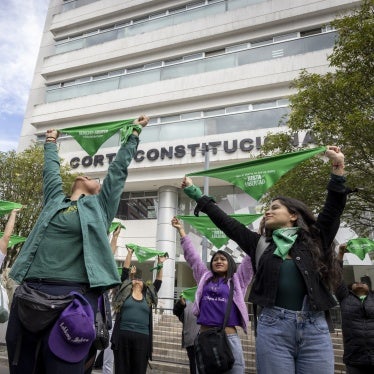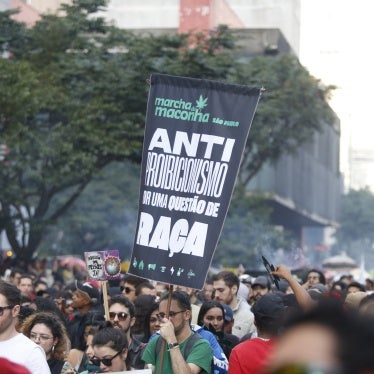(Washington, DC) - The Uruguayan Congress's failure to annul the country's amnesty law is a blow to those who want justice for past human rights abuses, Human Rights Watch said today.
On May 20, 2011, the Chamber of Deputies upheld the country's 1986 amnesty law - the Law on the Expiration of the Punitive Claims of the State - which protects police and military personnel from prosecution for crimes during the military dictatorship of 1973 to 1985. During the dictatorship, military and police officers committed egregious abuses, including enforced disappearances, arbitrary detentions, and torture. In two plebiscites, in 1989 and 2009, over 50 percent of Uruguayan voters rejected revisiting the amnesty legislation.
"Despite the amnesty law, some prosecutions of dictatorship era abuses have been able to move forward," said José Miguel Vivanco, Americas director at Human Rights Watch. "It is critical for the judiciary to pursue these cases because hundreds of families in Uruguay are still waiting for justice."
Judicial authorities have been able to proceed on a case-by-case basis. On October 19, 2009, the Uruguayan Supreme Court held that the amnesty law was unconstitutional. The court's decision, though, was only applicable to the case under review, involving the death of a young woman in military installations in 1974.
Similarly, since the amnesty law grants the executive the power to decide the cases to which it should be applied, courts have investigated and prosecuted officials whom former President Tabaré Vazquez excluded from the scope of the law. For example, on October 22, 2009, a court sentenced the former dictator, Gregorio "Goyo" Alvarez, to 25 years in prison for the death of 37 people who were "disappeared" during the dictatorship, and a marine to 20 years in prison for killing 29 people under similar circumstances.
In February 2011, the Inter American Court of Human Rights ruled that the Uruguayan amnesty law was incompatible with governments' international obligation to provide victims of human rights abuses with an effective remedy - including justice, truth, and adequate reparations - after they suffer a violation. The court held that given the law's "manifest incompatibility with the American Convention [on Human Rights, it]... lacked juridical effects and may no longer represent an obstacle for the prosecution of... cases of alleged serious human rights violations... that may have occurred in Uruguay."








